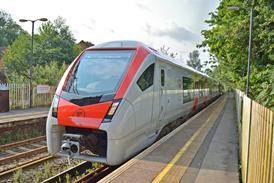VISITING South Korea on February 27 and 28, Russian President Vladimir Putin welcomed proposals to connect the country’s rail network to the Trans-Siberian corridor, describing the idea as ’a very good project’. He told business leaders in Seoul that Russia would be prepared to invest ’several hundred million dollars’ to revitalise the North Korean Railroad network.
Russia’s Minister of Railways Nikolai Aksyonenko subsequently held exploratory talks with his North Korean counterpart Kim Yong Sam on March 16-17, and signed a co-operation accord outlining the best way of utilising Russian expertise. His First Vice-Minister Alexander Tselko had already arranged for RZD to train around 1500 NKR technicians at a Russian railway college.
March 5 saw the resumption of work on reinstating the Munsan - Kaesong cross-border link, which was suspended in November due to the winter weather. Trains are expected to start running between Seoul and Pyongyang in September (RG 9.00 p511).
NKR is expected to concentrate on refurbishing its West Coast main line from Kaesong to Sinuiju on the Chinese border. This would feed landbridge traffic from Pusan onto the Trans-Manchurian and Trans-Mongolian main lines via Shenyang. Tselko says the Russian aid will be focused on restoring the 960 km East Coast route, which uses a border crossing between Seoul and Wonsan. This would direct the traffic along the Sea of Japan coast to the Russian border at Khasan, from which it would reach the Trans-Siberian near Vladivostok.
- Chinese Railways started work last month to reinstate a 100 km line in the east of Heliongjiang province, linking Dongning to the Trans-Manchurian main line at Suiyang.




















